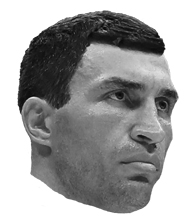
























Klitschko vs Sanders, Brewster
After failing to reach agreements with Kirk Johnson, Fres Oquendo, Lou Savarese and Danny Williams, Universum ultimately signed a 4 fight contract with Corrie Sanders, who was ranked No. 9 contender by WBO at the time. According to the agreement, Sanders' first fight was going to be for the WBO world heavyweight title. The fight was scheduled to take place on 8 March 2003 in Hanover, Germany. Klitschko later admitted that he came to the fight unmotivated and was already thinking about the vacation he was going to enjoy after the fight. Klitschko suffered and upset TKO loss to Sanders. With thirty seconds left in the opening round, Wladimir threw a jab but Sanders countered with a big left hook, prompting Klitschko to enter a clinch. While in the clinch, Sanders landed another left hook that sent Klitschko to the canvas. Klitschko got up but was dropped again almost immediately. The following round Sanders continued his assault on a visibly hurt Klitschko, dropping him twice more at the beginning of the round. The referee waived it off after the fourth knockdown. The fight was named Upset of the Year by The Ring for 2003.
Shortly after the fight Klitschko was rushed into the hospital. An examination showed Klitschko's blood sugar level almost tow times higher than the permissible norm. According to members of Klitschko's team, the doctor told them that Klitschko had been "inches away" from falling into diabetic coma, and that with blood sugar level that high, Klitschko would've been incapable of handling a single proper raining session. After returning from the examination to the hoel, he fell ill with nausea, followed by physical weakness. On 12 April, he arrived in Las Vegas and donated blood and urine samples for an independent examination, which was suposed to be done by Donald Katlin, who specialized in such cases. The examination showed no signs of anabolic steroids in his blood, but Katlin suggest that Klitscho could have been poisoned with Haloperidol. The drug has no taste or smell and caused mental disorders, which are accompanied by impaired coordination, a weakening reaction and overall physical weakness. Following the results, Klitschko demanded the tests taken by the Medical Center of South Nevada and the Nevada Quest Diagnostics to be passed on to Dr. Robert Wow for further research, but the A sample had already been disposed of, while the B sample, which was supposed to be stored for years, disappeared. Dr Margaret Goodman the chairwoman of the Nevada State Athletic Commission's medical advisory board and Nevada's chief ringside physician was in the ring and attending to Klitschko seconds after the referee stopped the fight. Her initial diagnosis of a Grade 3 concussion was confirmed at the hospital after further tests. Goodman was skeptical of the theory that Klitschko had been drugged.
As a result of the circumstances that surrounded the fight, FBI started an investigation. Judd Bernstein, the lawyer representing Klitschko, suggested that he was a victim of an ongoing fight fixing in Las Vegas (which also included fraudulent medical reports), which was investigated by FBI at the time. Bernstein, along with some other journalists, pointed out that in the last 48 hours before the beginning of the fight, the betting odds in favor of Klitschko rapidly dropped from 11-to-1 to 3,5-to-1. According to journalist Keith Teixeira, a group of approximately 40 people associated with Brewster's manager Sam Simon bet from $50,000 to $100,000 on Brewster's victory. Members of Klitschko's team also pointed out that shortly before the fight, a security camera recorded a moment when two people entered Klitschko's booth and were there for four minutes. These people had badges, but weren't members of Wladimir's team. Wladimir's brother Vitali claimed that during registration of the boxer and his team, the card that belonged to Emmanuel Steward's assistant had already been registered on someone else, and that such card would allow its owner to enter any sporting hall in the building.






